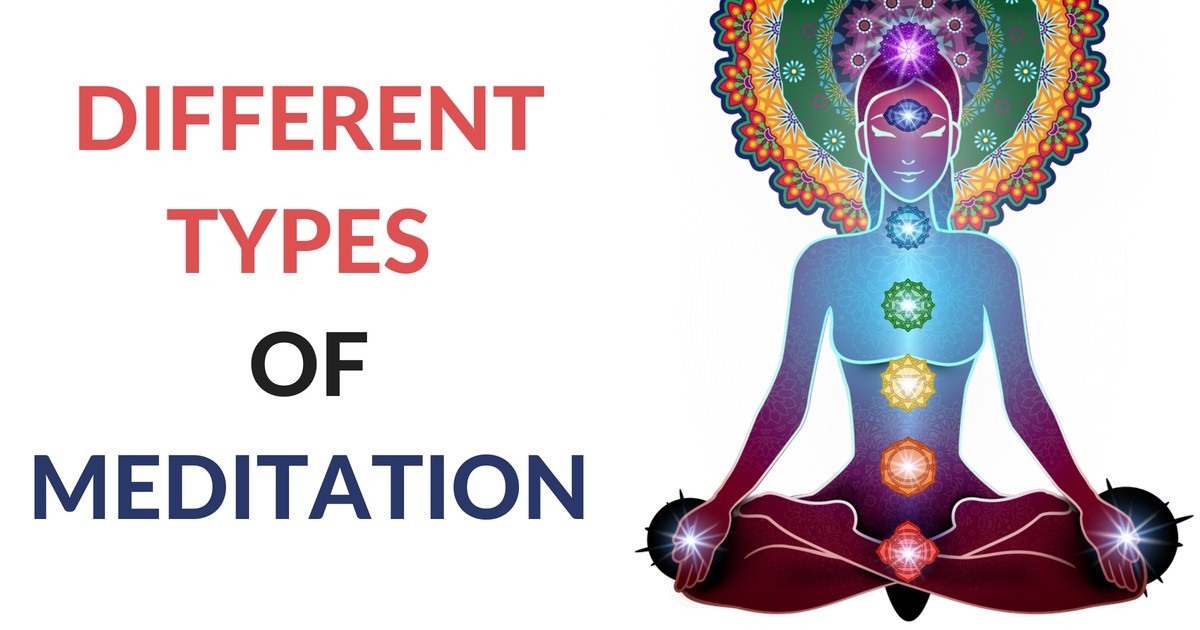Meditation, an age-old practice deeply rooted in various cultures and traditions, has captured global attention for its undeniable mental, emotional, and physical benefits. Across the globe, millions have turned to meditation for stress relief, increased focus, emotional balance, and an overall sense of well-being.
Though the word ‘meditation’ may conjure a generalized image of tranquil silence and mindfulness, it’s essential to understand that meditation is an umbrella term encompassing a myriad of practices. Each technique, from Mindfulness Meditation to Kundalini Yoga, offers unique benefits and practices, often suited to specific goals or personality types.
Here, we will explore 10 different types of meditation and benefits, to help you identify which practice aligns best with your personal needs and wellness objectives.

1. Mindfulness Meditation
Mindfulness Meditation is a widely-practiced technique, rooted in Buddhist traditions, centered on cultivating awareness of the present moment without judgment. This meditation style equips you with the skills to fully engage with your current experience, understanding your thoughts, emotions, and sensations as they occur.
Key benefits of Mindfulness Meditation include:
- Stress Reduction: Regular mindfulness meditation helps decrease stress levels by teaching you how to respond to stressful situations calmly and effectively.
- Emotional Well-being: It fosters emotional stability and resilience, allowing you to navigate life’s ups and downs with greater ease.
- Enhanced Focus: This practice improves concentration and attention span, helping you stay focused on tasks at hand.
- Improved Memory: It sharpens recall and cognitive function.
- Health Management: Mindfulness Meditation is beneficial in managing symptoms associated with depression, anxiety, chronic pain, and heart disease.
- Inner Peace: Regular practice cultivates a sense of inner tranquility and balance, helping you lead a more harmonious life.
2. Transcendental Meditation
Transcendental Meditation (TM) is a form of meditation introduced in the mid-20th century by Maharishi Mahesh Yogi. Unique to this method is the use of a personalized mantra – a word or sound given by a trained TM teacher, which the practitioner silently repeats to facilitate a deep state of relaxation and expanded consciousness.
Key benefits of Transcendental Meditation include:
- Stress Relief: Regular TM practice has been shown to significantly lower stress and anxiety levels, promoting a greater sense of calm and relaxation.
- Improved Cardiovascular Health: Research indicates TM can reduce risk factors for cardiovascular disease, including high blood pressure and high cholesterol.
- Enhanced Cognitive Function: Practitioners often report increased creativity, improved memory, and sharper cognitive abilities.
- Increased Self-awareness: TM promotes a deepened sense of self-awareness and inner peace, fostering a more harmonious relationship with oneself and the world.
- Better Sleep: It can improve sleep quality and help manage sleep disorders such as insomnia.
- Enhanced Emotional Well-being: Regular practice can promote greater emotional resilience and improved mood.
3. Loving-Kindness Meditation
Loving-Kindness Meditation, also known as Metta Meditation, originates from Buddhist traditions and focuses on cultivating an attitude of love and kindness towards oneself and others. The practice involves silent repetitions of positive phrases like “may you be happy, may you be safe,” initially directed towards oneself and then towards others.
Key benefits of Loving-Kindness Meditation include:
- Enhanced Well-being: Regular practice can foster feelings of happiness and contentment, boosting overall well-being.
- Improved Self-compassion: It encourages self-acceptance and self-love, crucial for mental health and personal growth.
- Increased Empathy and Compassion: The practice promotes an empathetic attitude, fostering improved relationships and social connections.
- Stress Relief: It’s known to reduce stress levels, anxiety, and depression, contributing to mental health.
- Emotional Healing: It can help overcome emotional wounds and traumas by replacing negative emotions with feelings of love and kindness.
- Health Benefits: Some studies suggest that it may have potential health benefits such as improving cardiovascular health and boosting the immune system.
4. Vipassana Meditation
Vipassana Meditation, also known as Insight Meditation, is an ancient Buddhist technique that promotes deep self-exploration and self-understanding through mindfulness of breath, body sensations, thoughts, and emotions. The practice involves observing the inner world without judgment or reaction, fostering a profound understanding of the impermanence of experiences.
Key benefits of Vipassana Meditation include:
- Self-Understanding: It enhances self-awareness, aiding you in understanding your thoughts, emotions, and actions more deeply.
- Reduced Stress: Regular practice helps reduce stress and anxiety by promoting a state of calmness and relaxation.
- Improved Emotional Resilience: It equips practitioners with the ability to manage and navigate life’s adversities effectively.
- Enhanced Mindfulness: The technique cultivates mindfulness, improving attention span and focus.
- Detachment: It fosters a sense of detachment from transient experiences, helping in managing cravings and aversions.
- Spiritual Growth: By providing profound insights into the nature of existence, it promotes spiritual development and inner peace.
5. Kundalini Meditation
Kundalini Meditation, rooted in Kundalini Yoga, focuses on awakening the dormant Kundalini energy at the base of the spine. This practice combines specific movements, mantras, and breathing techniques to promote energy flow through the body’s seven chakras, or energy centers.
Key benefits of Kundalini Meditation include:
- Physical Health: Regular practice can improve flexibility, strength, and overall physical health.
- Energy Awakening: It’s believed to awaken and harness the Kundalini energy, boosting vitality and life force.
- Enhanced Focus: The combination of movement and meditation improves concentration and mental clarity.
- Emotional Balance: It promotes emotional healing and stability, helping to manage stress, anxiety, and depression.
- Spiritual Growth: Kundalini Meditation fosters a deeper sense of connection with the self and the universe, encouraging spiritual growth and enlightenment.
- Holistic Well-being: By balancing the chakras, this practice supports holistic well-being, enhancing physical, mental, and spiritual health.
6. Mantra Meditation
Mantra Meditation involves the repetitive recitation of a word, phrase, or sound, known as a mantra, to focus the mind and achieve a meditative state. Originating from Hindu and Buddhist traditions, it’s a key component of many meditation practices, including Transcendental Meditation.
Key benefits of Mantra Meditation include:
- Enhanced Concentration: By focusing on a single mantra, it can improve attention and concentration.
- Promotes Relaxation: The rhythmic repetition of a mantra promotes relaxation, helping to alleviate stress and anxiety.
- Spiritual Connection: The use of spiritually significant mantras can foster a deep sense of spiritual connection and awakening.
- Improved Self-Awareness: The practice aids in self-awareness, offering insights into one’s thoughts and feelings.
- Increased Positivity: Mantras often carry positive, empowering meanings that can influence mindset and mood.
- Universal Accessibility: It’s accessible and easy to practice anywhere, anytime, making it a popular choice for meditation beginners.
7. Zen Meditation
Zen Meditation, or Zazen, originates from Buddhist tradition and refers to seated meditation. The practice aims to foster a sense of alertness and presence by focusing on posture and breath, while observing thoughts without judgment or distraction.
Key benefits of Zen Meditation include:
- Mental Clarity: It cultivates mental clarity and focus, aiding in reducing mind chatter.
- Stress Reduction: Regular practice aids in managing stress and anxiety, fostering a sense of calm and relaxation.
- Enhanced Awareness: Zen meditation improves mindfulness, enabling practitioners to stay present and alert.
- Emotional Stability: By observing thoughts without judgment, it promotes emotional stability and resilience.
- Spiritual Insight: In alignment with its Buddhist roots, Zazen encourages spiritual exploration and enlightenment.
- Improved Posture: The emphasis on posture during meditation can contribute to improved physical alignment and comfort.
8. Guided Visualization Meditation
Guided Visualization Meditation involves using your imagination to create peaceful and positive mental images. Guided by a narrator or recording, practitioners visualize a calming scenario or event to foster relaxation and healing.
Key benefits of Guided Visualization Meditation include:
- Stress Relief: This type of meditation can lower stress levels by transporting your mind to peaceful and happy places or situations.
- Mental Clarity: It can promote mental clarity by focusing on a singular, positive vision, reducing the volume of distracting thoughts.
- Emotional Healing: Visualization can help overcome negative emotions, potentially aiding in overcoming trauma or past negative experiences.
- Achievement of Goals: By visualizing success in your endeavors, you can promote a positive mindset and manifest your goals.
- Enhances Creativity: The practice of creating vivid mental imagery can enhance your creativity and innovative thinking.
- Sleep Quality: Guided Visualization Meditation can be particularly effective in promoting restful sleep, especially when used at bedtime.
9. Body Scan Meditation
Body Scan Meditation, a component of Mindfulness Meditation, involves mindfully scanning your body for sensations, from the top of your head to the tips of your toes. It promotes an enhanced sense of body awareness and relaxation.
Key benefits of Body Scan Meditation include:
- Promotes Relaxation: By focusing attention on different parts of the body, it aids in relaxation and tension release.
- Enhances Body Awareness: Regular practice helps improve the sense of bodily sensations and overall body awareness.
- Reduces Stress and Anxiety: Mindful body scanning can help reduce stress and anxiety, fostering a sense of peace and calm.
- Pain Management: It can help manage chronic pain by bringing non-judgmental awareness to pain sensations.
- Improves Sleep: The practice is often used before sleep to promote relaxation and improve sleep quality.
- Increases Mind-Body Connection: The body scan practice can deepen your mind-body connection, leading to greater self-awareness and mindfulness.
10. Walking Meditation
Walking Meditation is a form of mindfulness meditation where walking is the focus instead of the breath. This dynamic meditation method allows practitioners to be mindful while moving.
Key benefits of Walking Meditation include:
- Physical Activity: It adds a physical component to meditation, promoting overall fitness and health.
- Mindfulness: By focusing on the sensations of walking, it cultivates mindfulness and presence in everyday activities.
- Stress Reduction: Walking in a mindful way can help reduce stress and anxiety, fostering a sense of relaxation and peace.
- Increased Energy: It serves as an energizing alternative to still meditation forms, especially when feeling tired or restless.
- Connection to Nature: Walking outdoors allows you to connect with nature and your surroundings, enhancing feelings of well-being.
- Adaptability: Walking Meditation can be incorporated into daily routines, whether you are walking to work, walking your dog, or simply taking a stroll in the park.

Conclusion
There are various types of meditation and benefits for physical, mental, and emotional well-being. Mindfulness meditation cultivates present-moment awareness, reducing stress and improving focus. Loving-kindness meditation promotes empathy, compassion, and positive emotions. Transcendental meditation induces deep relaxation and clarity of mind. Vipassana meditation develops self-awareness and insight. Kundalini meditation increases vitality and spiritual growth. Zen meditation fosters mental clarity and non-attachment. Mantra meditation induces relaxation and spiritual connection.
Guided visualization meditation enhances creativity and goal manifestation. Body scan meditation promotes relaxation and body awareness. Walking meditation combines mindfulness with physical exercise. Explore these types of meditation and benefits they can bring to your life.


